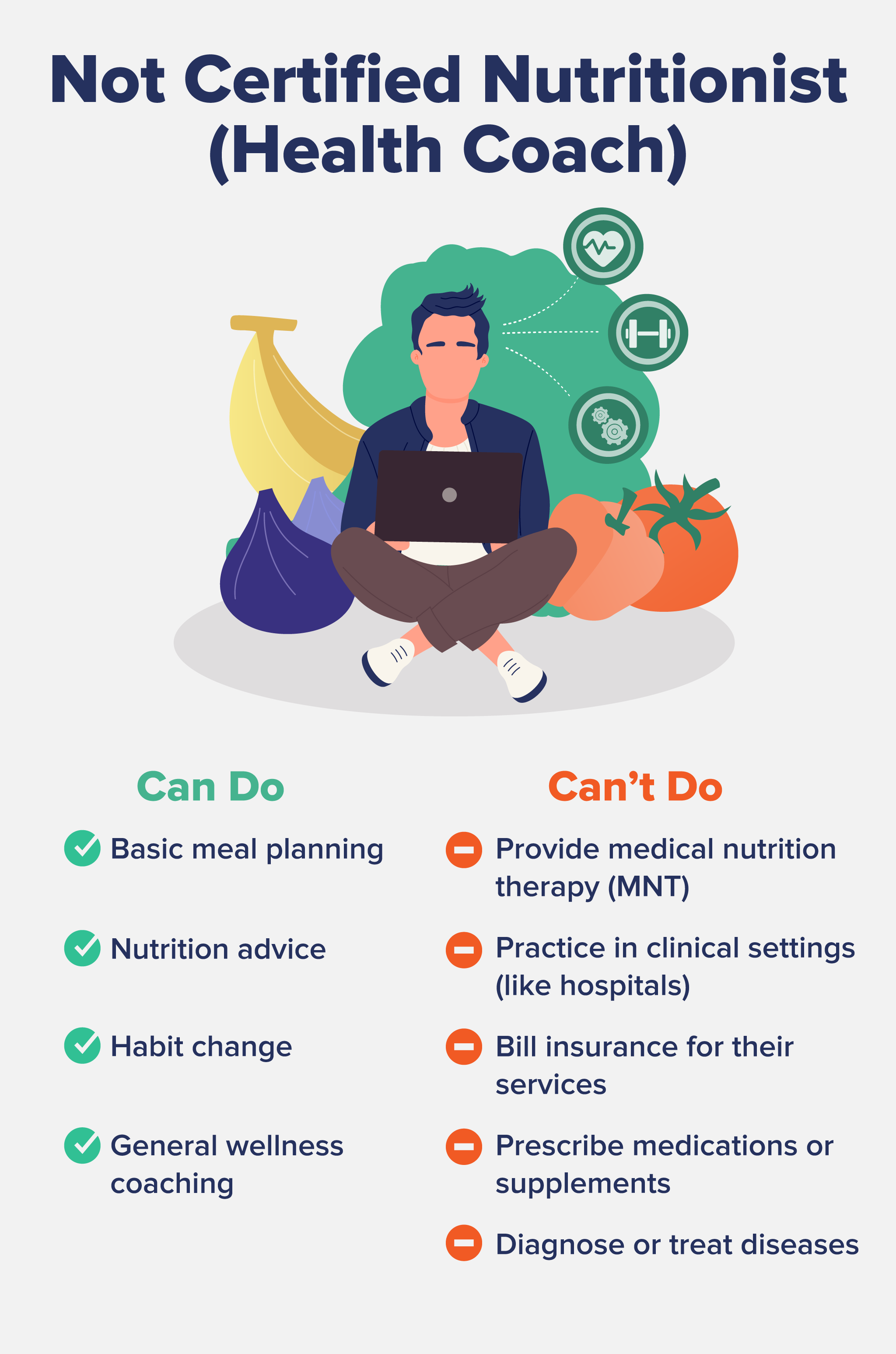Save $40 on your initial consult with a TNI Dietitian!
Talk to a real Dietitian for only $99: Schedule Now
Evidence Based Research To fulfill our commitment to bringing our audience accurate and insightful content, our expert writers and medical reviewers rely on carefully curated research.
Read Our Editorial Policy
If you’re trying to improve your diet, manage a chronic health condition, or just feel better in your body, you may have considered looking for professional nutrition help.
But as soon as you start searching, it gets a little confusing—do you need a nutritionist, a dietitian, or someone with “RDN” after their name? Understandably, you may wonder what these terms mean and who’s the most qualified to help.
For a TL;DR summary: Nutritionist isn’t a regulated term, while Registered Dietitians (RDs) are licensed, highly trained experts in evidence-based nutrition.
In this article, we’ll explain what a nutritionist does, the areas they can help, and what to look for when choosing someone to support your health journey.

In the U.S., the term nutritionist isn’t legally protected. That means anyone—regardless of education, training, or experience—can call themselves one. In some states (like California), even your gym receptionist or favorite TikTok influencer could technically use the title.
That doesn’t mean all nutritionists are unqualified—some truly do have degrees or certifications. However, without regulation, there’s no guarantee.
If you’re looking for someone with legitimate credentials, check for the Certified Nutrition Specialist (CNS) certification. A CNS must complete the following:
The most significant difference between an RD and a CNS is that RDs are always qualified to provide medical nutrition therapy (MNT) to manage chronic health conditions (like heart disease or diabetes) through diet, while only certain CNSs may provide MNT, depending on state regulations.
Overall, CNSs do not have the same legal recognition or nationwide licensure as RDs. The scope of practice can vary by state, and in some places, CNSs might be able to provide MNT if they work with a collaborating physician.
The bottom line is that a CNS is much more qualified than your average “nutritionist” but not as universally recognized as an RD.
Skip forums—get answers tailored to you in 45 minutes.
Skip forums—get answers tailored to you in 45 minutes.

Although the terms “nutritionist” and “dietitian” are often used interchangeably, they aren’t quite the same thing.
While all dietitians are nutritionists, not all nutritionists are dietitians.
To become an RD, you need:
If you want to verify someone’s credentials as a Registered Dietitian, look up their status here.

In general, nutritionists are people who help others improve their diets.
However, the title “nutritionist” is not legally protected or consistently defined in most states or countries.
Nutritionists might provide help such as:
But because the title isn’t regulated, nutritionists have no standardized scope of practice. What they can legally do depends entirely on state laws, individual credentials, and licensure (if any).
The scope of practice for nutritionists is more limited than that of RDs.
Nutritionists without a license (i.e., not a CNS) cannot:
If you’re generally healthy, don’t need chronic disease management through nutrition, and don’t mind if someone doesn’t have extensive clinical experience or nutritional education, a nutritionist might be fine for you.
But if you’re dealing with chronic health issues and want verified credentials, it would be best to look for a CNS or RD/RDN. These protected titles ensure you’re working with someone qualified, certified, and legally allowed to offer personalized, evidence-based nutrition care.